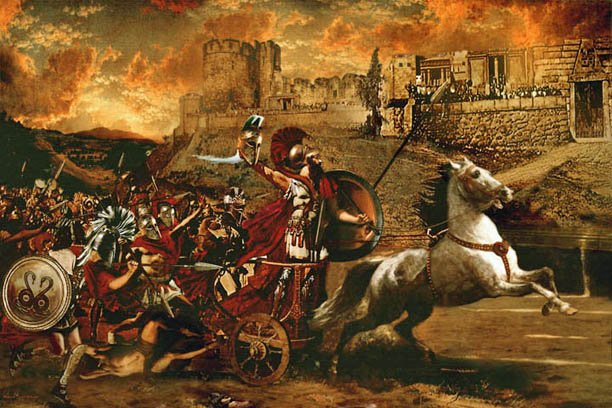Pationce Bennett
2/13/11
Period 4 Sparta
During this unit on Greece, we learned a great deal about the city-states: Athens and Sparta. The two rivaling city-states.
Athens was a beautiful city-state who’s talent was in the arts. Their patron goddess was, Athena, the goddess of wisdom. Therefore being the thing Athenians valued most. The women of Athens were controlled by the men. Until they were married, they were ruled by their father. Once married, they were controlled by their husbands. Athenian women got taught at home how to be a wife. how to use the loom, cook, clean, etc. Athenian women also weren’t aloud to leave the house except on special occasion. They also weren’t aloud to buy or own any property and disobey their fathers. While the men went a way to get an eduction. As you can see, women were ruled by men. Cleisthenes, a man of Athens, is known as the father of democracy. In a democracy, the people rule over themselves. Cleisthenes was an awesome military leader against the war with the Persians. Unfortunately, when the Athenians took a vote on who to throw out of the city, they chose Cleisthenes. Many think it was his enemies who did this though. Though he did inspire Athens to make a navy before he was thrown out. This became one of the greatest navies in Greece at the time. Ancient Sparta was a cruel place, but this was only because they valued military. They thought that military meant protection for their people, so naturally they wanted the best military. Their patron god was Ares, god of war. He had a thirst for bloodshed like no other. To Sparta, he was inspiration. The Spartans were so hung up on war that they’d check the male child after birth. If he was sickly in anyway, they left him outside the city. Unlike Athens, the women had almost unlimited rights. Since the men were always away training, at school, or even at war, the women had to run Sparta. They were aloud government positions, high education, and physical training. Because they would need to defend themselves while the men were away. The boys in Sparta would leave home at age 7, and until they were 12 they’d get a basic education. From the ages of 13-18 boys would go through physical training(A.K.A gym class:). At age 19 through age 20 the boys went through military training. Going through simulations of the hardships they’d experience during battle. From the ages of 21-30 the men served in the military. At age 30, they gained full citizen ship. They could now participate in the army and and move back home. Though being in the military, wasn’t really a choice for the men.
Though overall I’d like to say this unit by far has been the most fun and informative
about History.
~Pationce Bennett
~Pationce Bennett



